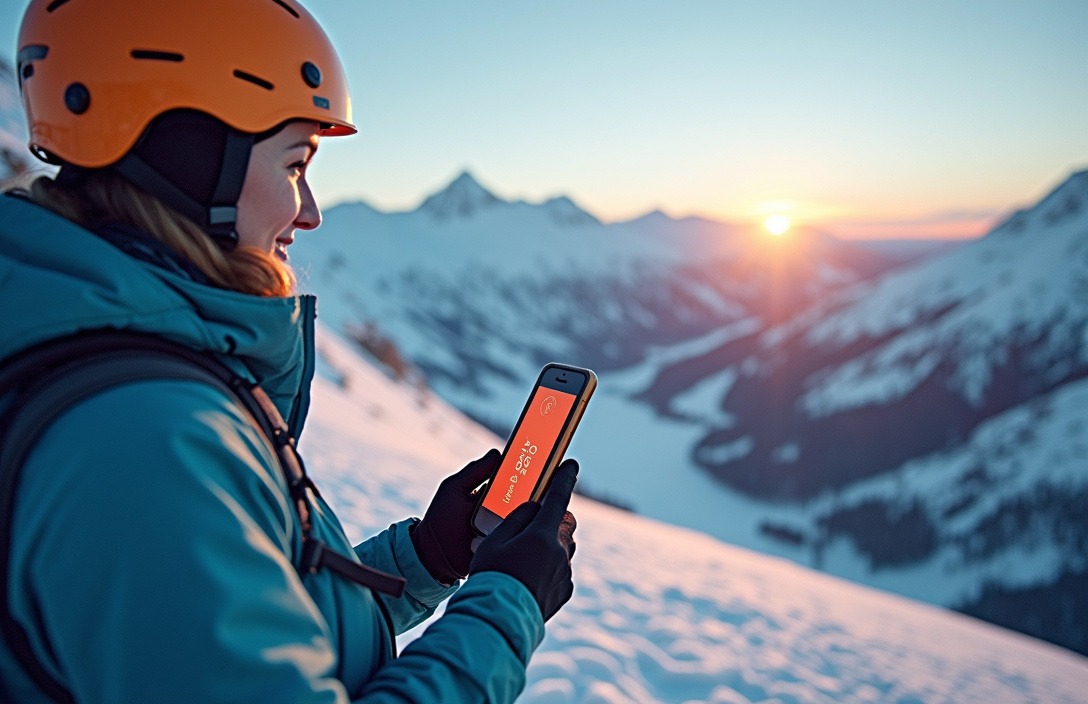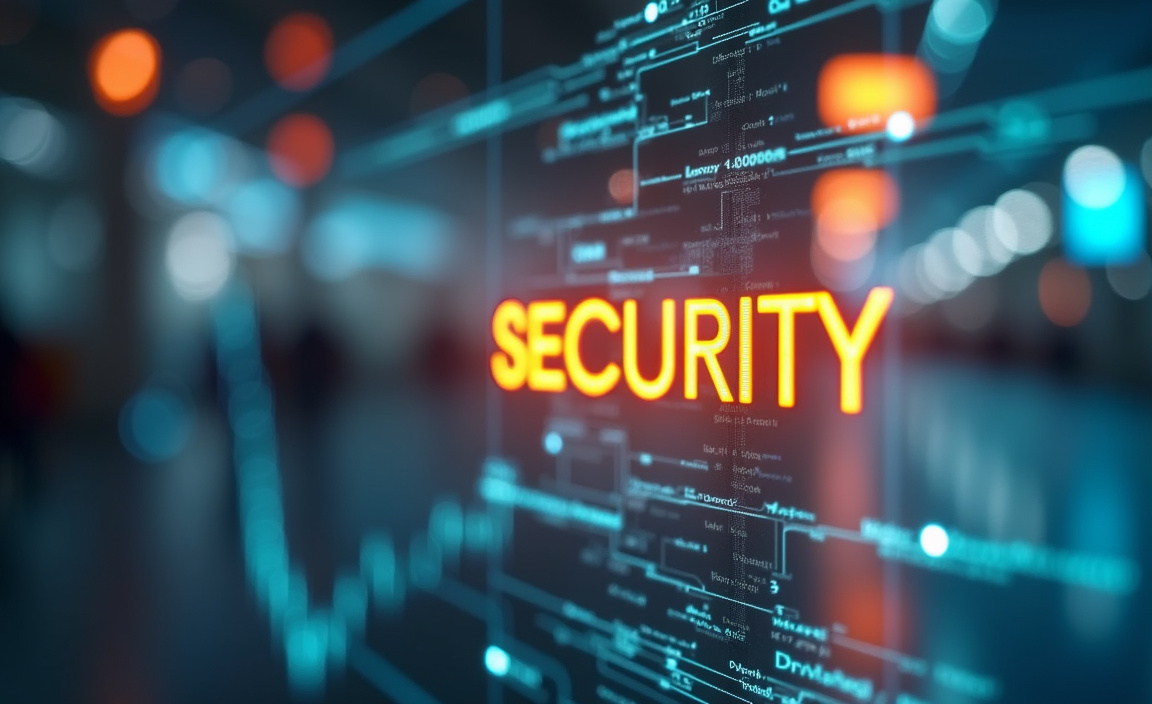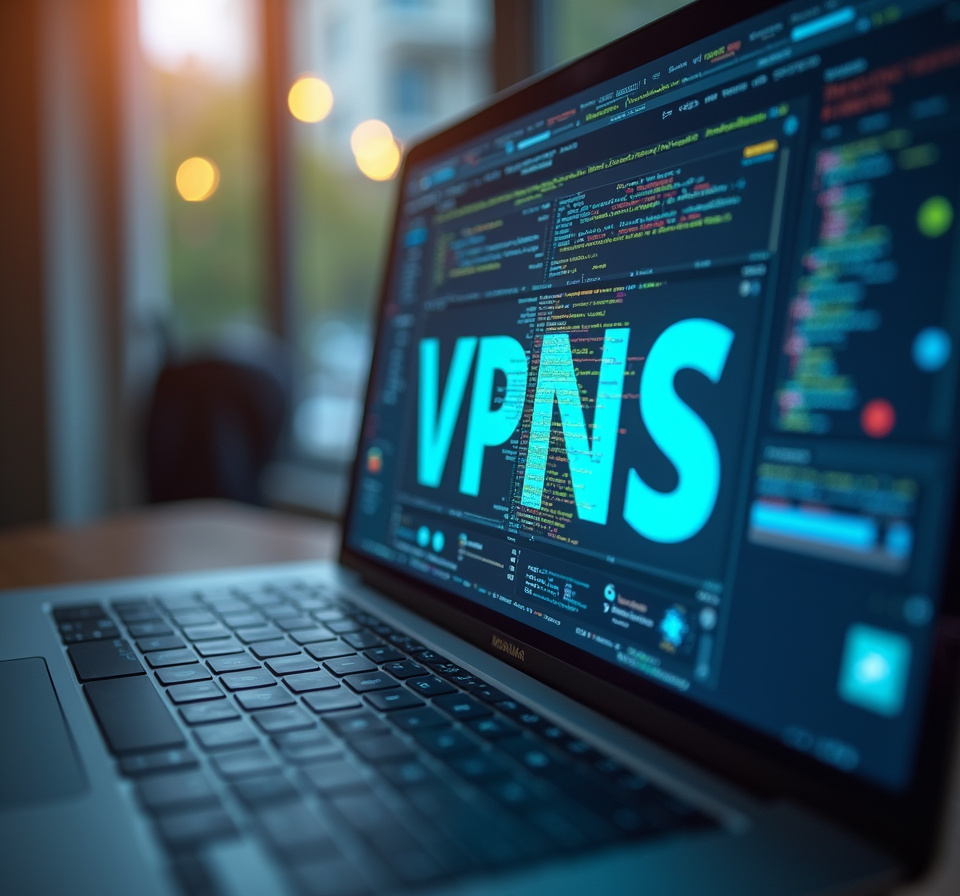VPNs for Backcountry Guides: Protecting Route Information

Table of Contents
The Digital Transformation of Backcountry Guiding and the Emerging Security Challenges
In the modern landscape of outdoor adventure, backcountry guides increasingly rely on digital tools for navigation, communication, and client management. While technology enhances efficiency and safety, it also introduces vulnerabilities regarding route security and client data protection. This article delves into the critical role of Virtual Private Networks (VPNs) in safeguarding sensitive information for backcountry guides.
We explore how VPNs protect valuable route data from competitors and malicious actors, secure client information to comply with privacy regulations, and enhance overall navigation safety. By understanding the benefits and implementation of VPNs, backcountry guides can strengthen their digital security posture, ensuring the confidentiality of their intellectual property and the privacy of their clients, ultimately contributing to a more professional and trustworthy operation in the digital age. The traditional image of a backcountry guide might conjure visions of compasses, paper maps, and an intimate knowledge of the terrain passed down through generations.
While these skills remain essential, the modern guide is increasingly reliant on digital tools, from GPS devices and route planning software to online booking systems and client communication apps. These technologies offer significant advantages in terms of efficiency, accuracy, and accessibility, allowing guides to explore new areas, optimize routes, and provide a more seamless experience for their clients. However, this reliance on digital resources also introduces a new set of security challenges.
The routes, trails, and hidden gems that are essential to a guide's livelihood are not just geographical paths; they are valuable intellectual property amassed through years of hard work, exploration, and intimate familiarity with the land. Unprotected, this information becomes vulnerable to competitors seeking to poach routes or malicious actors looking to disrupt business operations. Client data, including personal details, medical information, and emergency contacts, is equally sensitive.
The responsibility for protecting this information falls squarely on the shoulders of the guide. Breaches not only erode client trust but can also lead to severe legal repercussions, particularly with increasingly stringent data privacy regulations. In this environment, a VPN is no longer a luxury but a necessity.
Think of it as a digital shield, encrypting internet traffic and masking IP addresses to create a secure and private online environment. It’s a simple yet powerful tool that can significantly reduce the risk of data breaches, protect valuable route information, and ensure compliance with data privacy regulations. By implementing a VPN, backcountry guides can maintain their competitive edge, safeguard their clients' privacy, and navigate the digital wilderness with confidence.
The subsequent sections will explore these benefits in detail, providing practical guidance on selecting and implementing the right VPN solution for your needs.
backcountry guide VPN
One of the most significant benefits of using a is the protection of route information – the lifeblood of a successful guiding operation. Years of exploration, meticulous mapping, and intimate understanding of the terrain culminate in a repository of knowledge that sets a guide apart. This intellectual property, representing countless hours of effort and expertise, is what clients pay for: access to unique and rewarding experiences in the backcountry.
However, this valuable data is often stored and shared digitally, making it vulnerable to unauthorized access and exploitation. Unsecured email correspondence, unprotected cloud storage solutions, and the use of public Wi-Fi networks create potential entry points for competitors or malicious actors seeking to steal route information. Imagine a scenario where a guide diligently plans a new backpacking route, meticulously recording waypoints, trail conditions, and points of interest in a digital mapping application.
Without a VPN, this data, as it’s transmitted to a cloud-based storage service for safekeeping, is vulnerable to interception. A rival company could potentially monitor network traffic, identify the data transfer, and gain access to the route details, effectively stealing the guide's hard work and offering the same route to their clients. This not only undermines the original guide's competitive advantage but also diminishes the uniqueness and exclusivity of the experience for their clients.
A VPN addresses this vulnerability by creating an encrypted tunnel for all internet traffic, effectively scrambling the data as it travels between the guide's device and the internet. This makes it virtually impossible for unauthorized parties to decipher the information, ensuring that route details, maps, and other sensitive data remain confidential. The encryption process ensures that even if a competitor manages to intercept the data, they would only see a jumble of meaningless characters, rendering the information useless.
Beyond simply encrypting data in transit, a VPN can also help protect against more sophisticated attacks, such as phishing scams and malware infections. Backcountry guides, particularly those operating in remote areas with limited internet access, may be more susceptible to these types of threats. A phishing email disguised as a legitimate message from a supplier or client could trick a guide into revealing login credentials or other sensitive information, potentially granting attackers access to their route data.
Similarly, malware infections can compromise a guide's computer or mobile device, allowing hackers to steal or corrupt route information. A VPN with built-in malware protection and anti-phishing features can provide an additional layer of security, preventing these types of attacks from succeeding. Furthermore, the use of a VPN can help guides maintain control over their route information even when working with subcontractors or partner organizations.
By requiring all parties involved in a guiding operation to use a VPN, guides can ensure that route data is protected at all times, regardless of who is accessing it or where they are located. In essence, a VPN acts as a digital vault, safeguarding valuable route information and allowing backcountry guides to operate with confidence, knowing that their intellectual property is protected from prying eyes.
Client data protection
stands as a paramount ethical and legal responsibility for backcountry guides. The nature of the profession necessitates the collection of sensitive personal information from clients, ranging from basic contact details and emergency contacts to more private data such as medical conditions, allergies, and dietary restrictions. This information is crucial for ensuring client safety and providing a personalized experience, but it also presents a significant risk if not properly secured.
Failure to protect client data can lead to serious consequences, including reputational damage, legal liabilities, and a loss of client trust, which can be devastating for a small business. The increasing prevalence of data privacy regulations, such as GDPR in Europe and CCPA in California, further underscores the importance of robust data protection measures. These regulations impose strict requirements on how businesses collect, store, and process personal data, and they carry significant penalties for non-compliance.
Backcountry guides, even those operating on a small scale, must be aware of these regulations and take steps to ensure that they are meeting their obligations. A VPN plays a crucial role in helping backcountry guides comply with data privacy regulations and protect client information from unauthorized access. By encrypting all internet traffic, a VPN ensures that client data is protected as it is transmitted between the guide's device and various online services, such as booking systems, email servers, and cloud storage platforms.
This prevents cybercriminals from intercepting and stealing client data as it travels over the internet, reducing the risk of data breaches. Consider a scenario where a backcountry guide uses an online booking system to collect client information, including names, addresses, phone numbers, and medical details. Without a VPN, this data is vulnerable to interception as it is transmitted from the client's computer to the booking system's server.
A hacker could potentially eavesdrop on this traffic and gain access to the client's personal information, which could then be used for identity theft, fraud, or other malicious purposes. With a VPN, however, the data is encrypted, making it unreadable to anyone who intercepts it. This ensures that the client's personal information remains confidential and protected from unauthorized access.
Beyond encryption, a VPN can also help prevent other types of data breaches, such as those caused by malware infections or phishing attacks. Malware can steal client data directly from a guide's computer or mobile device, while phishing attacks can trick guides into revealing their login credentials, giving hackers access to their online accounts and the client data stored within them. A VPN with built-in malware protection and anti-phishing features can help prevent these types of attacks from succeeding, further safeguarding client data.
In addition to protecting client data in transit, a VPN can also help protect data at rest. Many VPN services offer secure cloud storage solutions that encrypt data stored on their servers. This ensures that even if a hacker gains access to a guide's online account, they will not be able to read the client data stored in the cloud.
By implementing a comprehensive data protection strategy that includes a VPN, backcountry guides can demonstrate their commitment to protecting client privacy and build trust with their customers. This can lead to increased customer loyalty, positive word-of-mouth referrals, and a stronger reputation in the outdoor adventure community.
VPN for outdoors
Beyond route security and client data protection, a inherently contributes to in several crucial ways. While a VPN's primary function is data encryption and privacy, its ability to mask IP addresses and provide secure connections can be instrumental in ensuring reliable access to critical navigation resources, even in remote or challenging environments. This is especially vital for backcountry guides who rely heavily on digital navigation tools and real-time information for the safety and well-being of their clients.
One key aspect of navigation safety is access to accurate and up-to-date maps and weather information. Backcountry guides often utilize online mapping applications and weather forecasting services to plan their routes, monitor conditions, and make informed decisions about safety. However, these services can be subject to disruptions or restrictions, particularly in remote areas with limited internet connectivity or in regions where governments censor or block access to certain websites.
A VPN can help bypass these restrictions by allowing guides to connect to servers in different locations, effectively masking their actual IP address and making it appear as if they are accessing the internet from a different country. This can be particularly useful for accessing weather information from international sources or for circumventing censorship restrictions in certain regions. Moreover, a VPN can enhance the reliability of GPS signals, especially in areas with weak or obstructed satellite coverage.
By connecting to a VPN server in a location with stronger GPS signals, guides can improve the accuracy and stability of their GPS devices, ensuring more precise navigation and reducing the risk of getting lost or off course. This can be particularly important in dense forests, mountainous terrain, or other areas where GPS signals may be unreliable. Consider a scenario where a backcountry guide is leading a group of hikers through a remote mountain range.
The guide is relying on a GPS device to navigate the trail and monitor the weather conditions. However, due to the rugged terrain and dense forest cover, the GPS signal is weak and unreliable. The guide also wants to access a weather forecasting website to check for any upcoming storms, but the website is blocked in the region.
By connecting to a VPN server in a different location, the guide can bypass the website restrictions and access accurate weather information. The VPN can also help improve the GPS signal by routing the connection through a server with stronger satellite coverage, ensuring that the guide can navigate the trail safely and efficiently. Furthermore, a VPN can protect against man-in-the-middle attacks, which can compromise the integrity of navigation data.
In a man-in-the-middle attack, a hacker intercepts the communication between a guide's device and a navigation server, potentially altering the data being transmitted or injecting malicious code. This could lead to inaccurate map information, false weather reports, or even compromised GPS signals, all of which could have serious consequences for navigation safety. By encrypting all internet traffic, a VPN makes it much more difficult for hackers to intercept and tamper with navigation data, ensuring that guides are receiving accurate and reliable information.
In addition to these technical benefits, a VPN can also provide a psychological sense of security, allowing backcountry guides to focus more fully on their navigation responsibilities without worrying about the security of their online connections. This can be particularly important in stressful or challenging situations, where clear thinking and decisive action are essential for ensuring the safety of the group. In summary, a VPN is not just a tool for protecting data and privacy; it is also a valuable asset for enhancing navigation safety in the backcountry.
By providing reliable access to critical navigation resources, improving GPS signal accuracy, and protecting against man-in-the-middle attacks, a VPN can help backcountry guides navigate safely and confidently in even the most challenging environments.
backcountry guide VPN
Selecting the right VPN and implementing it effectively is crucial for maximizing its benefits for backcountry guides. The market is flooded with VPN providers, each offering a range of features and pricing plans. Choosing the right one requires careful consideration of specific needs and priorities.
Factors such as server locations, speed, security protocols, data limits, and compatibility with various devices should all be taken into account. Furthermore, understanding how to properly configure and use a VPN is essential for ensuring optimal protection and performance. Simply subscribing to a VPN service is not enough; guides must also take steps to configure their devices, choose appropriate server locations, and monitor their VPN connection to ensure that it is working correctly.
One of the first steps in selecting a VPN is to assess your specific security needs. Do you primarily need to protect route information, client data, or both? Are you concerned about accessing restricted websites or improving GPS signal accuracy?
Understanding your priorities will help you narrow down your choices and focus on VPN providers that offer the features and capabilities you need. For example, if you are primarily concerned about protecting client data, you should look for a VPN provider that offers strong encryption protocols, a strict no-logs policy, and a kill switch feature that automatically disconnects your internet connection if the VPN connection drops. If you need to access restricted websites, you should look for a VPN provider with a large network of servers in different locations, allowing you to bypass censorship restrictions and access content from around the world.
Another important factor to consider is speed. A VPN can sometimes slow down your internet connection, so it is important to choose a provider that offers fast and reliable speeds. Look for VPN providers that use optimized servers and protocols to minimize the impact on your internet speed.
It is also important to consider the VPN's compatibility with your devices. Do you need a VPN that works on your computer, smartphone, or tablet? Make sure the VPN provider offers apps for all the devices you use to access sensitive information.
Once you have selected a VPN provider, it is important to configure your devices properly. This typically involves downloading and installing the VPN app, creating an account, and connecting to a server. You may also need to adjust certain settings, such as the encryption protocol and server location, to optimize your security and performance.
It is also important to monitor your VPN connection regularly to ensure that it is working correctly. Check the VPN app to make sure that you are connected to a server and that your IP address is being masked. You can also use online tools to verify your IP address and check for any DNS leaks.
In addition to these technical considerations, it is also important to educate yourself and your employees about VPN security best practices. This includes things like choosing strong passwords, avoiding phishing scams, and keeping your software up to date. By following these steps, you can ensure that your VPN is providing the best possible protection for your route information, client data, and overall navigation safety.
In conclusion, implementing a VPN is a proactive step towards securing your digital operations as a backcountry guide. By taking the time to select the right VPN provider, configure your devices properly, and educate yourself about VPN security best practices, you can significantly reduce your risk of data breaches, protect your valuable intellectual property, and ensure the safety and privacy of your clients. This investment in digital security will not only protect your business but also enhance your reputation and build trust with your customers, ultimately contributing to your long-term success in the outdoor adventure industry.
Investing in a is investing in peace of mind and professional excellence.
Stay Updated
Get the latest VPN news, tips, and exclusive deals to your inbox.




